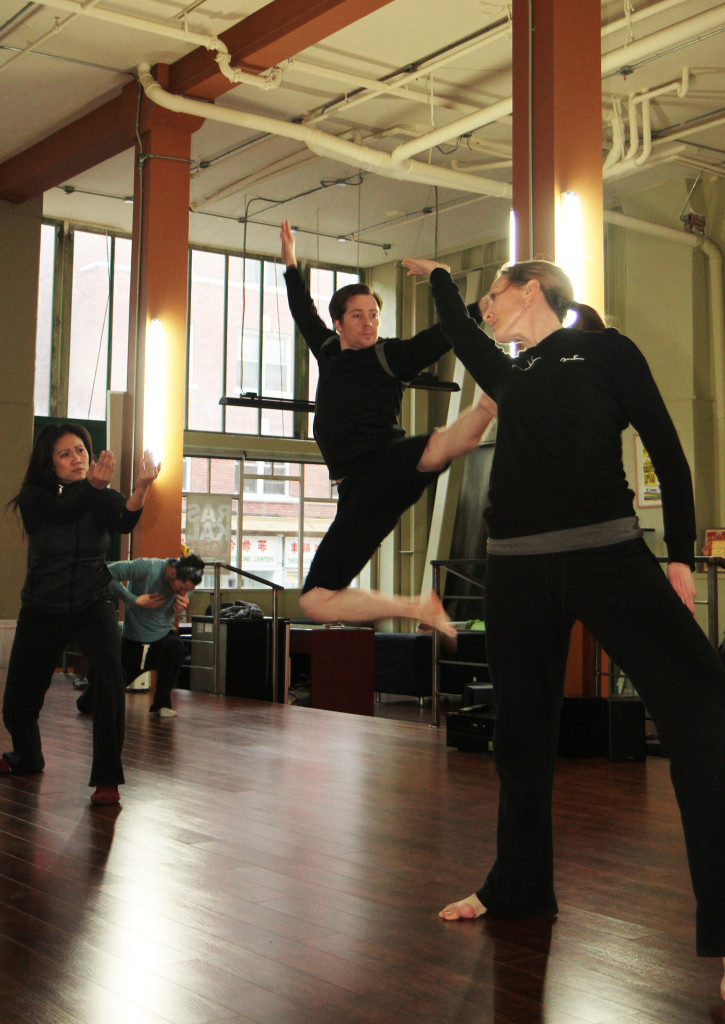Seattle University is known for its fervent involvement in social justice, along with its goal for each student to work to be more socially justice. As a way to bring social justice to the forefront, the Center for the Study of Justice in Society has collaborated with Seattle-based Splinter Dance Company to arrange a dance performance on Seattle U’s campus titled “An Art of Justice Performance.”
As a justice dance company, Splinter Dance Company choreographs dance routines to express different social justice issues, such as racism, sexism and misogyny. The upcoming performance is a fundraiser for both the company and the center and will incorporate justice issues through an art/dance medium.

Splinter Dance Company wil be performing on Jan. 30 several dances for the event entitled “An Art of Justice Performance” in Piggott Auditorium at 7P.M. They Practice at different venues in Seattle and are working hard towards the performance.
Trevor Umbinetti
The project was inspired by a number of Splinter’s previous performances, such as “Splinter Effect: A Diversity Dance Throwback” from last fall. Producer Robin Campbell shared the company’s goal for the community in terms of their previous performances as well as their plans for their future performances.
“Some of Splinter’s repertoire dates back to 1992 when its predecessor, Diversity Dance Workshop, began and started melding the dynamics of dance and drama with the energy and enthusiasm of youth, [in order] to educate communities about the healing principle of unity in diversity and to inspire positive social change,” Campbell said.
The show is also part of a justice program founded by cellist and justice artist, Paul Rucker, which is the same program that housed the Angela Davis lecture this past October. This particular performance is part of a larger plan that the two organizations put together: the dance company would arrange two short performances for the lecture program, then follow up with a longer performance later in the year, “The Art of Justice Performance” performance.
Pamela Taylor, the director and event coordinator of the project, hopes that the medium of dance will engage students in social justice issues in new ways.
“The Center for the Study of Justice in Society is intended to engage the university campus in understanding justice issues. We do that in a variety of ways, whether it be through public lectures, discussion groups, or book clubs . . . those other type of typical that issues are engaged in,” Taylor said. “For the first time, we started thinking, ‘how do we tap into a different way of engaging and thinking about it and raising awareness of issues of justice?'”
For Campbell, the hope is that the performance will inspire students as well as help students understand the power of art when it comes to social change and social justice issues.
“An ‘Art of Justice’ brings to the forefront the power that art can have in affecting social change. Our hope is that the community leaves the performance inspired to make changes that lead to social equity in whatever way that they are able, in their own circles of influence,” Campbell said.
To engage students even further, the show will be interactive. “This show features a post-show Q&A intended to encourage audience members to get involved, ask questions, and discuss how they can become ‘part of the solution,'” said Campbell.
While the performance might gear more toward those interested in fine arts and social justice, Taylor believes the show is applicable to all students. “I don’t think we have an exclusive targeted audience,” she said. “I think people who attended the [Angela Davis] lecture program will be moved by the performance.”
For Campbell, one of the most pivotal pieces in the show is one that shows society’s role in response to the social justice issues. “Whether the violent outcome is caused by mental instability, social ostracism, or is reactionary in nature, human response to those with an apparent ‘lack’ can be transforming,” she said.
The performance also hits home for Campbell as she has experienced some of the issues discussed in the show. “Each piece speaks to me in a different way. As a female, I have dealt personally with various forms of violence towards women,” Campbell said. “I’ve also experienced being refused a job because I’m female.”
Despite this, her activism has given her hope and happiness. “I’m much more fulfilled as a human striving to be ‘part of the solution’ rather than just another statistic. Dancing these issues and sharing these ideals has empowered me beyond anything else I could be doing with my life,” she said.
“An Art of Justice Performance” will show on January 30 in Pigott Auditorium at 7 p.m.








